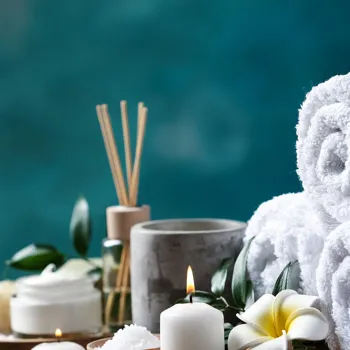Unlock the Benefits of Mental Health Days: Enhance productivity & well-being. Dive into why you need them!
In the hustle-bustle of modern Indian life, where we're constantly juggling work, family responsibilities,
and social commitments, it's easy to find ourselves feeling overwhelmed and burnt out. We often push ourselves to the limit, sacrificing our well-being in the process.

But what if I told you that taking a day off, specifically for your mental health, could actually make you more productive and resilient in the long run? Yes, you heard that right!
Mental health days are not a sign of weakness; they're a vital tool for maintaining overall wellness and preventing more serious mental health issues down the line. Let's delve into why incorporating these days into your routine is essential for a happier, healthier, and more balanced life.
Recognize signs of needing a mental health day
Before we dive into the benefits, let's talk about how to recognize when you need a mental health day. This isn't about just wanting a day off to binge-watch your favourite shows (although that can be part of it!). It's about acknowledging when your mental and emotional resources are depleted.

Common signs include feeling constantly irritable, experiencing persistent fatigue even after adequate sleep, finding it difficult to concentrate on tasks, feeling overwhelmed by simple things, losing interest in activities you usually enjoy, and experiencing physical symptoms like headaches or stomachaches that are related to stress.
If you're experiencing several of these symptoms, it might be time to consider taking a day to recharge. Listen to your body and mind; they're usually pretty good at telling you when you need a break! Don't ignore the whispers until they become shouts.
Proactive self-care is always better than reactive damage control. It's like servicing your car regularly – it prevents major breakdowns later.
Taking a mental health day can help you reset, destress, and gain clarity for better productivity
So, what exactly does a mental health day do for you? Well, for starters, it gives you a chance to disconnect from the stressors of your daily life. This allows your nervous system to calm down, reducing the production of stress hormones like cortisol and adrenaline.

Imagine your mind as a computer with too many tabs open—a mental health day is like closing those tabs and defragmenting the hard drive. It allows you to rest, recharge, and gain a fresh perspective.
When you return to your responsibilities after a mental health day, you'll likely find yourself feeling more focused, motivated, and creative. You'll be able to approach challenges with a clearer head and a renewed sense of energy.
Mental health days also provide an opportunity for self-reflection and introspection. You can use this time to identify the sources of your stress and develop strategies for managing them in the future. It might involve journaling, meditation, or simply spending time in nature.
Customize a mental health day for relaxation and self-care
The beauty of a mental health day is that it's entirely customizable to your needs and preferences. There's no one-size-fits-all approach. The key is to choose activities that genuinely relax and rejuvenate you.

This could involve spending time in nature, reading a book, listening to music, practicing yoga or meditation, pursuing a hobby, spending time with loved ones, or simply taking a long, relaxing bath. Avoid anything that will add to your stress, such as catching up on work or chores.
This is your time to prioritize yourself and your well-being. Don't feel guilty about taking a day off. Remember, you can't pour from an empty cup. Taking care of your mental health is not selfish; it's essential for being able to function effectively in all areas of your life.
Turn off your phone, put on your favourite playlist, and let yourself unwind. The world will still be there tomorrow.
Normalize mental health days for overall well-being
One of the biggest challenges many Indians face when considering a mental health day is the feeling of guilt or shame. We're often conditioned to believe that we should be constantly productive and that taking time off is a sign of laziness or weakness.

This stigma surrounding mental health can prevent people from seeking help or taking the breaks they need. It's important to remember that mental health is just as important as physical health. You wouldn't hesitate to take a day off if you had a fever or a bad cold, would you?
Mental health issues are equally valid and deserving of attention. Challenge these negative beliefs and remind yourself that taking care of your mental well-being is an investment in your overall health and happiness. Talk to your family, friends, or colleagues about your mental health needs.
The more we talk about it, the more we can break down the stigma and create a more supportive environment. Normalize mental health days.
Incorporate mental health days into routine for well-being
Incorporating mental health days into your routine shouldn't be seen as a luxury; it should be considered a necessity. Start by scheduling a mental health day at least once a month. Treat it like any other important appointment and resist the urge to cancel it.
Communicate your needs to your employer or family members in advance and explain why taking this time is important for you. Create a supportive workplace culture where mental health is valued and employees feel comfortable taking time off when they need it.
Lead by example and encourage your colleagues or family members to prioritize their well-being as well. Remember, taking care of your mental health is an ongoing process, not a one-time fix. Develop healthy habits like regular exercise, a balanced diet, adequate sleep, and mindfulness practices.
Seek professional help if you're struggling to manage your mental health on your own. Taking care of your mind is a sign of strength, not weakness.
Mental health days are crucial for overall wellness
In conclusion, mental health days are a crucial tool for maintaining overall wellness in today's fast-paced world.

By recognizing the signs of burnout, prioritizing self-care, and challenging the stigma surrounding mental health, you can create a happier, healthier, and more balanced life for yourself.
So, take a deep breath, schedule that mental health day, and give yourself the permission to rest, recharge, and rejuvenate. Your mind and body will thank you for it.
AI Generated Content. Glance/InMobi shall have no liability for the content












